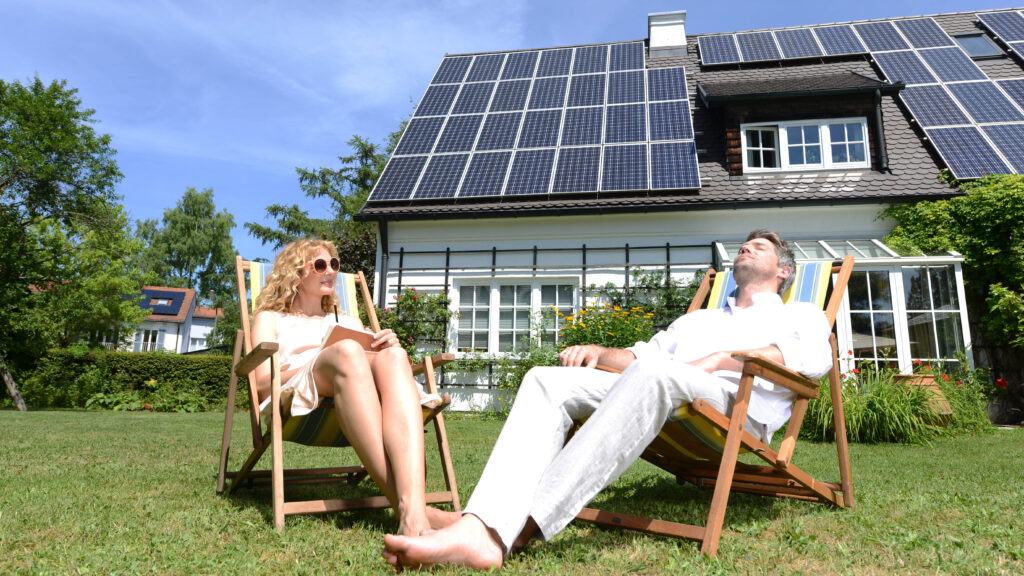If you have just been introduced to solar energy systems and have had a solar energy system installed, you may be thinking that there is nothing left to do. While this is essentially true, there are many techniques to make the most effective use of solar panel systems. Getting the maximum amount of energy is not enough; it is also important to find ways to use energy efficiently. Here are six simple tips for those who want to learn how to deal with solar panels and all these energy sources:

1. Store unused energy for future use
Solar panels provide a constant source of electricity throughout the day, but you can’t usually consume all the energy produced instantly. Most people are not at home during the day and our appliances do not always work. This means that excess energy can be wasted and only used after dusk. Buying a battery to store the energy you generate allows you to use this excess energy later. A good battery is absolutely essential if you plan to completely eliminate electricity bills and become independent of the commercial electricity grid.
For many years, lead acid deep cycle batteries have been the standard choice for solar panel systems, but in the last few years, lithium ion batteries have come to the forefront, dropping in price. This is because lithium-ion batteries are more powerful, more efficient, last longer and take up less space.
Lithium-ion batteries are suitable for grid-connected and off-grid use. The model is stackable, which allows users to achieve greater flexibility and easily increase storage capacity when needed. Remember, you also need a charge controller to protect your battery from high voltage and overcharging from solar panels.
2. Make efficient use of the summer energy surge
In spring and summer, solar panels receive longer and more intense sunlight, so their energy production increases. On average, solar panel systems generate 40-50% more electricity in July and August than in November and December. It is important to find ways to use this increased energy without losing it. For example, you can utilize this surplus in an air conditioning unit. Thanks to this energy surplus in the summer, you can often install a small air conditioning system without adding a new solar panel to your home.
3. Check solar panel performance
You don’t need to go on the roof every few months to make sure your solar panel is working properly. Although the solar panel manufacturer recommends that you visually check your solar array once a year, it makes the most sense to have its operation tested by professional experts. In this article we shared, you can learn what kind of tests are performed on solar panels: https://www.solarian.com.tr/gunes-panellerine-hangi-testler-yapilir/
The importance of these maintenance and tests is much more important in professional solar energy enterprises. For more detailed information about our inspection and measurement services in accordance with IEC standards, you can read this article: https://www.solarian.com.tr/gunes-enerjisi-santralleri-ges-denetimi-ve-olcum-hizmetleri/
By establishing a Bluetooth connection with your smartphone, these systems can allow you to monitor your solar photovoltaic system 24/7. If the solar panel performance suddenly drops, you can quickly detect it and take the necessary measures.
4. Always keep the solar panel clean
If your solar panels are installed on the ground, they need to be cleaned 2-3 times a year. If you have solar panels placed on a sloping roof, rain may be enough to clean them, but after a while you may need to clean them because the dust on the solar panels will turn into mud over time. How often you need to clean solar panels depends on the area where you live.
You can call a specialized service unit to clean it or clean it yourself. It is similar to cleaning windows, but without soap.
5. Practical ways to save energy
To use solar energy more effectively, you can look for ways to reduce energy expenditure. Your electricity bills or meters can help you identify the appliances that consume the most energy at home. Some appliances may consume a lot of electricity simply because they are old, while others can be replaced with more energy efficient models. For example, LED bulbs consume less energy than traditional incandescent lamps. Also, replacing an air conditioning system with a ceiling-mounted fan can save energy.
Home appliances often consume energy in standby mode, which on average accounts for 23% of annual household electricity consumption. However, it can be difficult to constantly unplug appliances, so using smart plugs can be useful. Overall, whether you have solar panels or not, saving energy in your home can save you money and help fight global warming.
6. New ways to use solar energy
After replacing all your energy-consuming appliances with less energy-consuming ones, you may have more energy than you initially thought. Here’s how you can put this extra energy to good use:
- Garden Use: You can water your plants using an automatic irrigation system powered by solar energy.
- Electric Vehicles: A solar panel system can be compatible with electric vehicles. It can be difficult to charge electric vehicles with large energy needs, but for small vehicles such as scooters, solar energy can be quite effective.
- Energy Sharing: You can create a micro-network that shares energy with your neighbors, so you can share your excess energy with others.
- Pool Pump: You can make pool maintenance more sustainable by using a solar-powered pool pump.
These are just a few examples, but there are many different ways to use solar energy. Be creative and try to make the most of the energy.